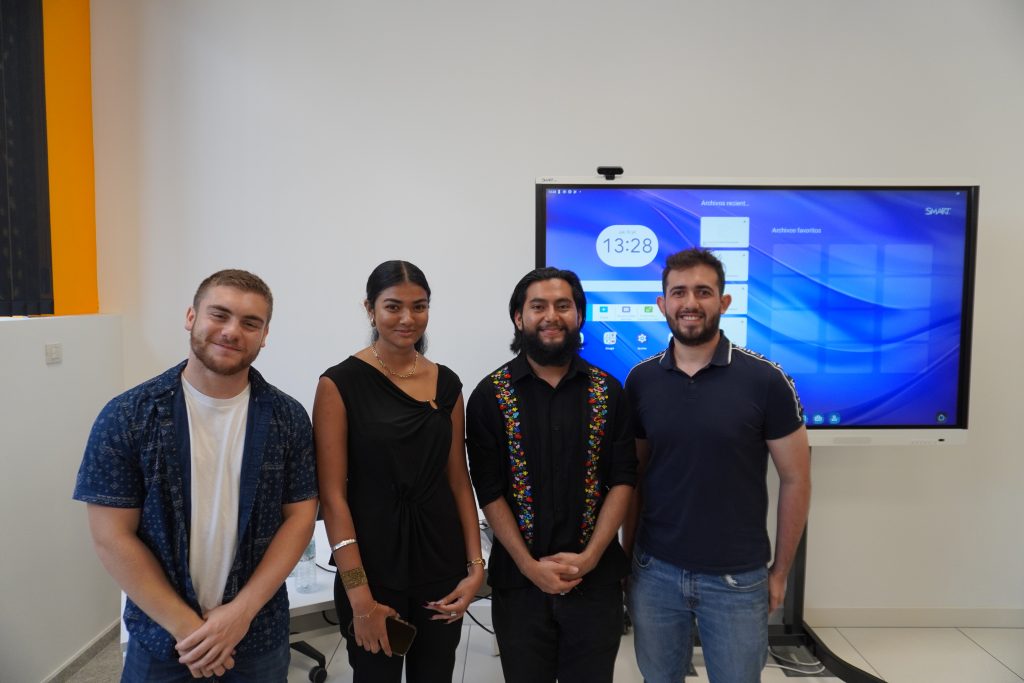
MIT students present their research at a new CITIC TIC Talk Breakfast
This morning, the Centre for Research in Information and Communication Technologies (CITIC) at the University of A Coruña hosted a new edition of the TIC Talk Breakfasts, a space for scientific outreach where research staff share their latest work in an accessible format. On this occasion, the session had a distinctly international character, featuring the participation of four students from the Massachusetts Institute of Technology (MIT), who are currently undertaking a research stay at the UDC’s ICT research centre.
During the event, the students presented cutting-edge projects exploring the application of artificial intelligence models in two key areas: medicine and cybersecurity.
Juan C. Santiago, a second-year student at MIT working at CITIC under the supervision of researchers Eduardo Mosqueira Rey and Diego Álvarez Estévez, opened the session with a presentation focused on the use of generative adversarial networks (GANs) for airflow synthesis, used in sleep studies. His research seeks to improve the quality and diversity of available data in order to train more robust models for the detection of respiratory disorders, contributing to the development of tools to support medical diagnosis.
Cybersecurity was the common thread in the presentations by the other three students, all of whom are affiliated with the RNASA-IMEDIR research group at CITIC. Jace López shared his personal experience as a first-generation student at MIT, combining his academic journey with advances in his research on operating system fingerprinting through network traffic analysis. His work employs Transformer models to identify patterns and enhance detection capabilities in digital environments.
Along the same lines, Ishanvi Kommula presented her work with NetGPT, the first pre-trained generative model applied to network traffic. Her research also focuses on operating system recognition, a key technique in defending against cyber threats. Kommula highlighted the connection between this line of work and her previous experience with privacy-preserving AI projects developed at MIT’s CSAIL.
Finally, Jaime Punyed addressed the transformative potential of Transformer-based models in the field of network security, particularly in traffic analysis. Punyed noted that one of the main barriers to training these models is the requirement for large volumes of data, which poses significant privacy challenges. His research therefore focuses on federated learning, a technique that allows models to be trained in a decentralized manner, preserving the confidentiality of each user’s data.





